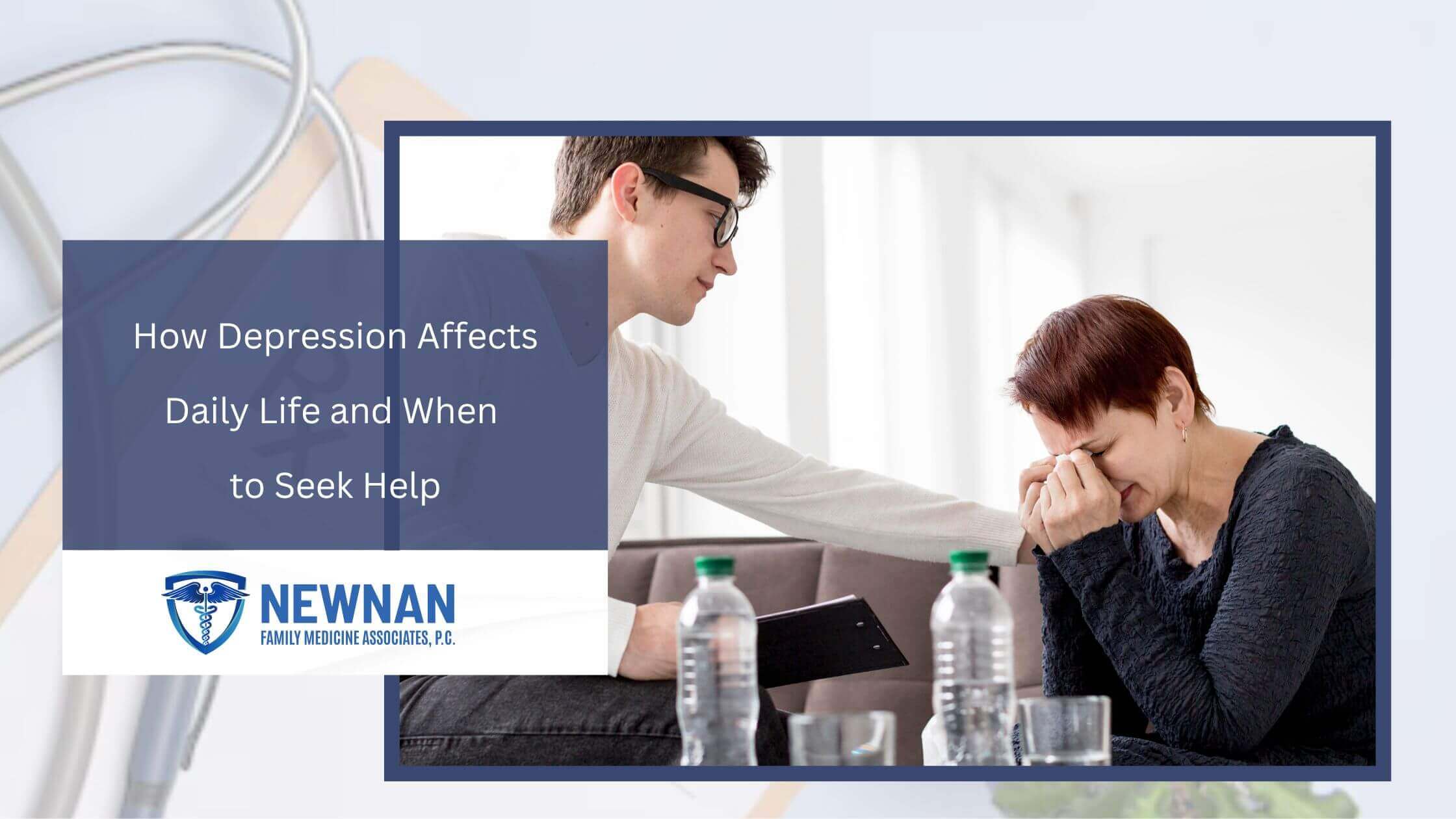


Depression is a serious medical condition characterized by persistent feelings of sadness, hopelessness, and a loss of interest in daily activities. It is a common yet serious mental health condition that affects millions of people worldwide. Far from being “just in your head,” depression can impair memory, concentration, sleep, appetite, and social interaction.
Continue reading to understand how depression affects everyday life and why timely support and treatment are essential.
Depression, also known as Major Depressive Disorder, is a medical condition that goes beyond occasional sadness or grief. It can persist for weeks, months, or even years and often requires professional treatment. There are also other forms, such as Persistent Depressive Disorder (dysthymia), which involves chronic symptoms that are less severe but longer-lasting.
Common signs include:
Unlike temporary emotional lows, clinical depression disrupts daily life and requires intervention.
The effects of depression on daily life can be profound and multifaceted. From emotional well-being to work performance and social relationships, depression and everyday life are deeply intertwined.
Depression often causes persistent emotional struggles. People may experience a deep sense of hopelessness or emptiness that makes it hard to find joy in life. Once enjoyable activities, like spending time with friends, pursuing hobbies, or exercising, can lose appeal.
Feelings of worthlessness and guilt can become overwhelming, leading individuals to blame themselves for things that aren’t their fault. This emotional burden can contribute to isolation and a lack of motivation.
Many people don't realize that depression also impacts cognitive functioning. It can lead to:
Tasks that were once simple, such as replying to emails, managing household chores, or following a conversation, can suddenly feel exhausting and mentally taxing.
“How depression affects daily life” isn’t limited to thoughts and feelings. Physical health often suffers as well. Common physical symptoms include:
These symptoms make it even more difficult to maintain routines and responsibilities, contributing to worsening symptoms.
One of the most noticeable effects of depression on daily life is its impact on relationships and productivity. Individuals may:
Even basic responsibilities, such as cooking meals or attending appointments, may feel overwhelming. This disconnection from everyday life can make the person feel even more isolated and misunderstood.
Identifying the signs of depression is an essential step toward healing, and professional support plays a key role in recovery. A primary care provider or licensed mental health professional can offer the right diagnosis and guide you toward effective care.
Common treatment options include:
Depression treatment is not one-size-fits-all. Each person’s needs are different, and finding the right combination of support may take time. A personalized, compassionate approach makes all the difference, and lasting improvement is possible.
Living with depression can feel like carrying an invisible weight that touches every part of your life. From emotional health to daily functioning, the effects of depression on daily life are real and deeply impactful. But the most important takeaway is that the depression is treatable, and you are not alone.
By understanding how depression affects daily life, we can reduce stigma and encourage open conversations. Whether for yourself or someone you care about, seeking help is a strong and hopeful first step toward healing.
If you’re struggling with depression, everyday life feels overwhelming. At Newnan Family Medicine, we have a compassionate team supporting you with personalized care plans, including therapy, medication, and lifestyle guidance.
Start feeling like yourself again. Book a consultation today.